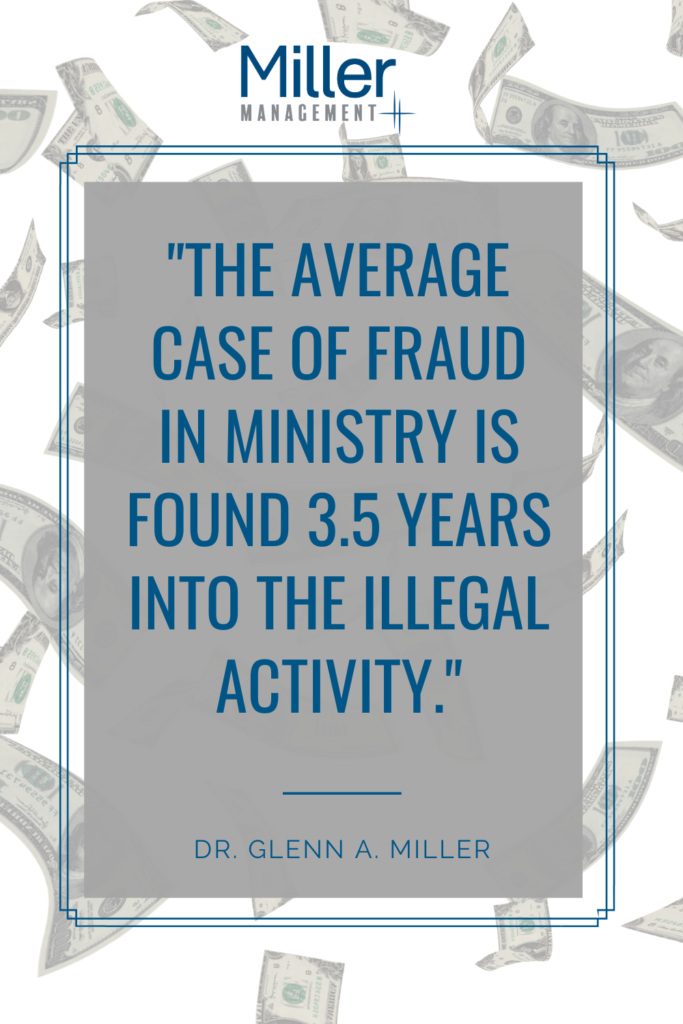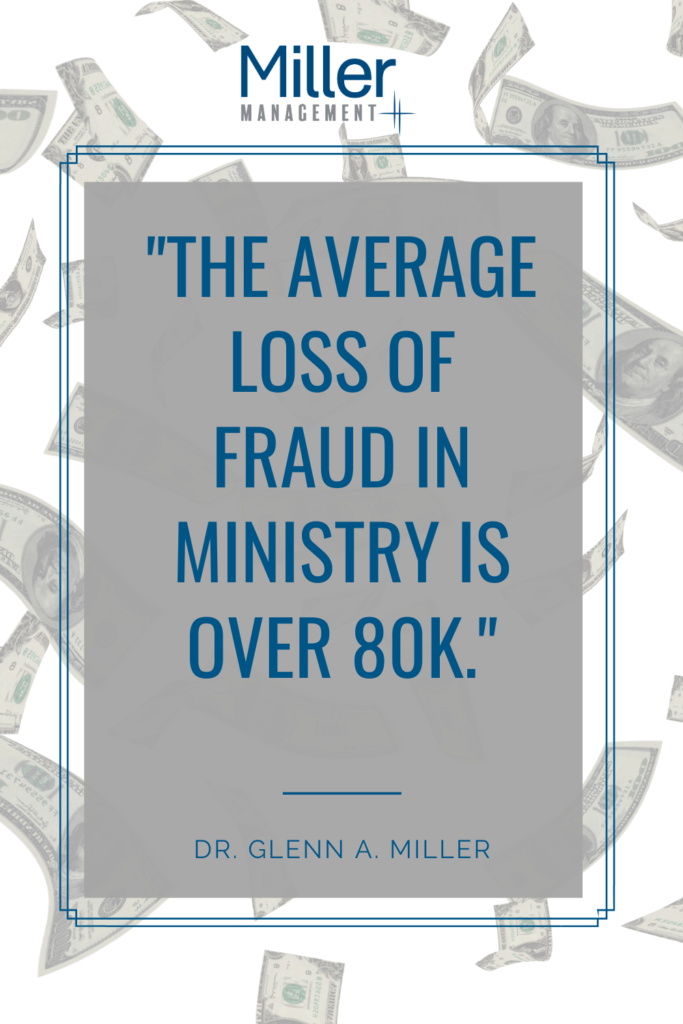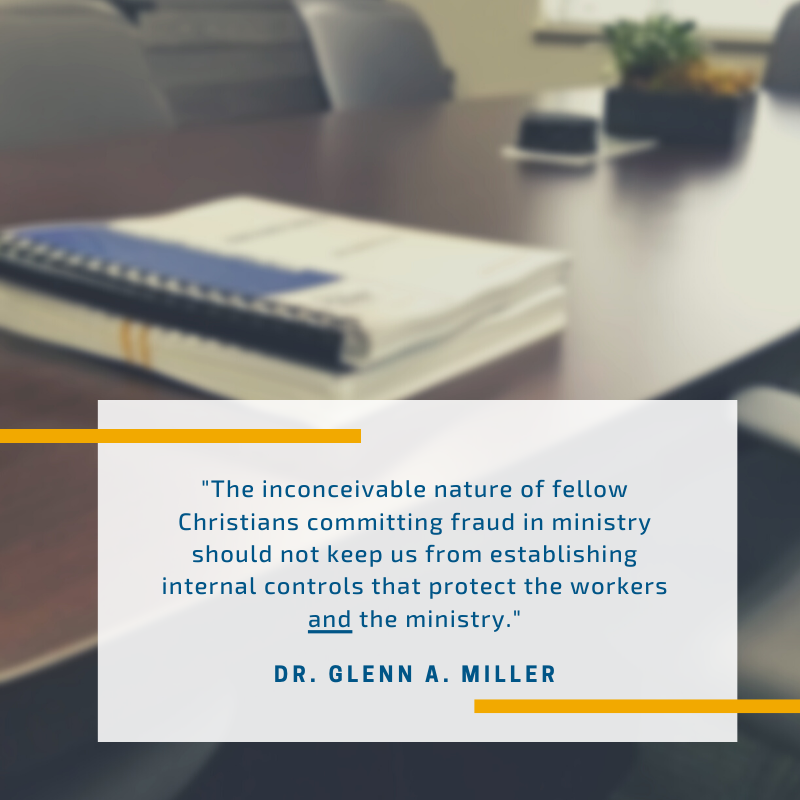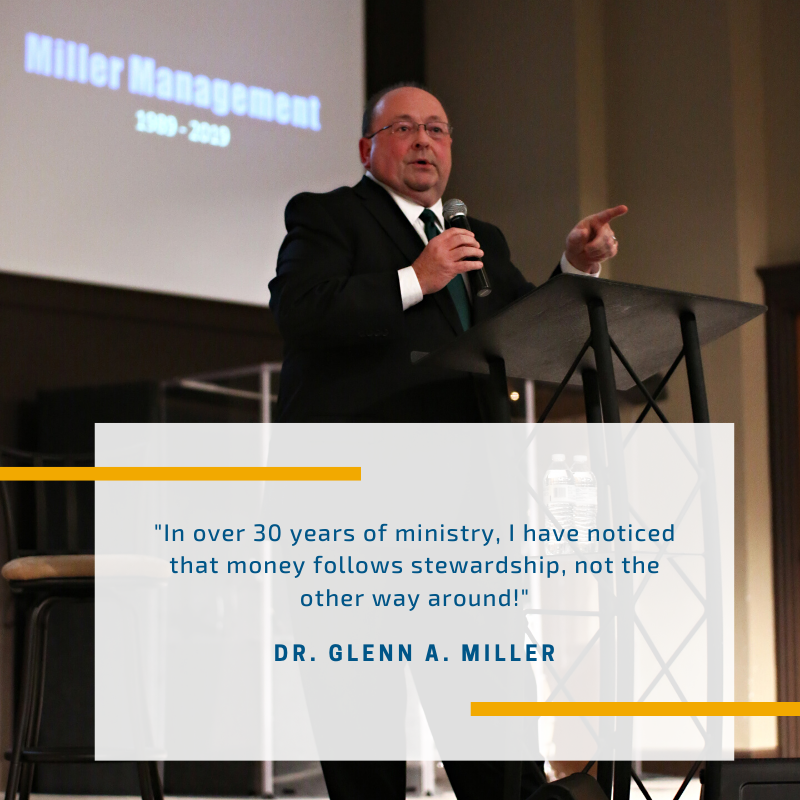November 13, 2020
Fraud Prevention in Ministry

ACFE Fraud Week
The week of November 15th is Fraud Prevention Week for the Association of Certified Fraud Examiners (ACFE). The team at Miller Management believes that this area is such a valuable topic to discuss.

Follow along this week on social to catch our posts regarding #FraudPreventionWeek in ministry.
Where to Start to Prevent Fraud:
This area of preventing fraud in ministries is something that our company is very passionate about. We encourage you to review our Anti-Fraud blog series where we define Fraud and introduce the Fraud Triangle, first.
Because research shows that Fraud in Ministries is “Increasing at an annual rate of more than six percent, researchers expect fraud committed against the church worldwide to reach the $80 billion mark by 2025.” – according to Brotherhood Mutual.
This number may be even more than incoming donations to organizations worldwide. These numbers are staggering on their own, but we also have to take into consideration that not all fraud in ministries is even reported. Or, like Dr. Miller is quoted below, is resolved once found.
The Statistics
Our hope is that we can continue to educate churches and ministries and help these surprising statistics decrease in the coming years…

- MM recently investigated its longest fraud case in company history, fraud was taking place over a 14 year period in a local church.
Access the ACFE’s 2020 Report to the Nations
- MM stats show less than 20% of fraud cases produce any restitution for the church.

- Less than 20% of churches prosecute fraud. They don’t prosecute because of public shame, poor reflection on leadership or church management, standing in the community, admitting to fault and poor administration, and the fear that donors will leave or stop giving. This needs to change, the more prosecutions, the greater the community awareness that might cause change.

Next Steps in Fraud Prevention:
If this area of fraud prevention is something your organization would like more information on, we encourage you to start with one of these next steps:
- Read these articles: Credit Card Policy, Sample Whistle Blower Policy, Check Signers Standards / Protocol, Anti-Fraud Policy, and Whistle Blower Policy.
- Take the Internal Controls Checklist to see how Fireproof your ministry really is.
- Order this book, Confessions of a Church Felon: a real-life fraud case we investigated.
- Listen to this two-part Podcast, where Miller Management’s CEO speaks to the topic of Fraud in ministries.
- Schedule an Administrative Audit, where we give you recommendations for your specific organization.
- Ask Miller Management – Your Good Faith Accounting Partner – if you have questions but don’t know where to start.

Food for Thought:
Lastly, we will end with this quote. Miller Management is very passionate about helping ministries reduce fraud in their organizations. To limit the perceived opportunities, and help bring fraudsters to justice to reduce fraud in all ministries.
Our CEO, Glenn Miller, who is a Certified Fraud Examiner, is quoted in this article regarding fraud prevention in the church.
“Glenn Miller, the CEO of Miller Management agrees. He has recently completed his dissertation on reducing fraud in ministry and is a certified fraud examiner. He has found the emotional trauma involved with someone stealing from within can be more than some institutions can handle. Miller said often people don’t want to talk about it, let word of it get out or prosecute; They just want it to go away. Sometimes they have been dismissed mid-investigation because institutions don’t even want to know the extent of the losses – they just want to put it behind them. That course of action may mean that the same thing could happen again somewhere else.”
The Missouri Conference UMC

Stay Connected